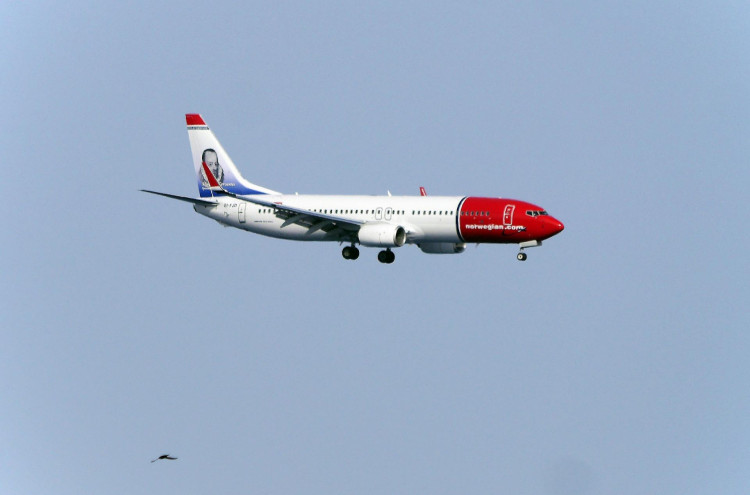Saudi Arabia's newest national airline, Riyadh Air, is making waves with its ambitious goals, positioning itself as the "largest startup airline in the Middle East in the past 30 years," a "digital-native airline of the modern era," and a "brand-new premium full-service airline."
On March 12, Saudi Crown Prince and Prime Minister Mohammed bin Salman officially announced the establishment of Riyadh Air. Fully owned by the Saudi Public Investment Fund, the airline aims to further drive the kingdom's non-oil economic growth. Riyadh Air plans to commence operations in 2025, with a goal to connect over 100 global destinations by 2030.
Recently, Riyadh Air's CEO, Tony Douglas, visited China, holding media briefings in Guangzhou, Beijing, and Shanghai. He also engaged in discussions with major Chinese airlines, airports, and regulatory bodies. Douglas mentioned that Riyadh Air doesn't plan to join any airline alliances. Instead, they aim to establish high-level strategic partnerships with major international airlines to enhance Saudi's global connectivity.
Addressing the Connectivity Gap
Despite being the most populous country on the Arabian Peninsula with a population of 32.18 million, over 90% of foreign passengers traveling to and from Riyadh, Saudi's capital, require a layover to reach their final destination. Douglas highlighted this connectivity gap, noting his recent travels required flights with Qatar Airways and Emirates.
Douglas also emphasized Saudi's multi-trillion-dollar investments in Red Sea projects, such as the "Qiddiya" mega entertainment city and the "AlUla" project. These initiatives necessitate support from an international-level airline. Riyadh Air's integration into the Saudi aviation ecosystem will also continuously expand the kingdom's aviation network coverage and connectivity.
When asked about the Middle East's dominant airlines - Emirates, Qatar Airways, and Etihad Airways - Douglas downplayed direct competition, citing different operational models.
Flying Direct to China by 2026
Within six months of its announcement, Riyadh Air has already initiated various preparatory activities. In March, the airline placed its first wide-body aircraft order for 72 Boeing 787 Dreamliners, showcasing its livery at the Paris Air Show. Douglas revealed that a second livery design would be unveiled later this year.
Riyadh Air plans to commence operations in 2025, with intentions to connect to Chinese airports by 2026. Initially, the airline hopes to establish direct flights to Beijing, Shanghai, Guangzhou, and Chengdu, with other major Chinese cities under consideration for future expansion.
On the recruitment front, Riyadh Air received over 600,000 resumes from more than 140 countries and regions within five months of launching its website. Many applicants hail from China. Douglas emphasized the extensive groundwork required to establish an international airline from scratch, including ongoing recruitment and training for ground staff, engineers, pilots, and infrastructure development.
Pricing and Branding To quickly penetrate the market and elevate brand recognition, Riyadh Air has been actively engaging the public. In August, the airline inked a long-term agreement with Atlético Madrid, becoming the primary sponsor and ensuring its brand will be seen by millions of soccer fans worldwide. Douglas hinted at Riyadh Air's increased presence in various sports events in the future.
During the media briefing, Douglas reiterated Riyadh Air's positioning as a premium full-service airline, aiming to elevate passenger service to new heights. While high-quality service often implies higher ticket prices, Douglas stated that it's too early to discuss specific ticket pricing, as various factors, including market competition, demand, and fuel prices, influence it.
Although Saudi Arabia is the world's second-largest oil producer, it doesn't have a cost advantage in aviation fuel procurement. Douglas explained that aviation fuel, a globally traded commodity, is priced based on international commodity trading standards. Riyadh Air will purchase fuel in the same manner and at the same prices as other airlines.
Douglas believes Riyadh Air must offer exceptional value to its customers. "Given our neighbor, Qatar, has excellent global connectivity, if we can't present the best value, people will immediately turn to other options," he said.






